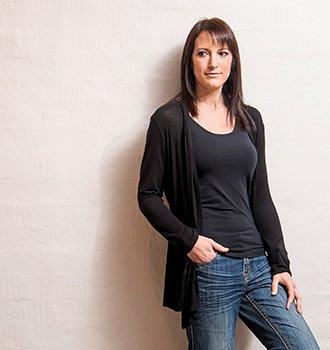Latest News Archive
Please select Category, Year, and then Month to display items
01 October 2019
|
Story Xolisa Mnukwa
|
Photo Xolisa Mnukwa
 From the left; Gift Taku, 2019 Doty winner; Reabetswe Mabine, Doty Coordinator Tshepo Zweni, first runner-up and Jacobeth Selinga, second runner-up
From the left; Gift Taku, 2019 Doty winner; Reabetswe Mabine, Doty Coordinator Tshepo Zweni, first runner-up and Jacobeth Selinga, second runner-up
The votes have been tallied, and after much deliberation, the UFS is proud to announce Gift Taku as the winner of the 2019 KovsieGear Designer of the Year (DOTY) Competition!
Tshepo Zwane and Jacobeth Selinga won second and third place respectively, with innovative designs that complied with the assessment requirements, based on originality of the design, adherence to the brand guidelines, creativity, and other criteria.
Gift’s design triumphed with 845 votes on the UFS KovsieLife webpage, as well as in the presentation in front of a judging panel.
Since 2016, KovsieGear has been discovering local (UFS staff and students) graphic designers and giving them a platform to showcase their work through DOTY, which runs annually. The aim of the competition is to support local talent by giving entrants an opportunity to come up with creative designs that are unique to the university and which will be used on limited-edition apparel in the store, as well as getting featured in the KovsieGear catalogue.
The competition has since fashioned the best clothing-logo designs the university has ever seen and continues to motivate and empower students to make positive contributions to the Kovsie campus culture and brand.
For more information about DOTY contact Reabetswe Mabine at MabineR@ufs.ac.za
The winning design by Gift Taku:

#Women'sMonth: Lack of HIV education still affects children
2017-08-17

Dr Nickie Goedhals, Senior Lecturer and Pathologist
in Medical Microbiology and Virology at the UFS.
Photo: Sonia Small
“Despite all the advances in the management and prevention of HIV, children still become infected every day, often due to lack of education and access to health care.” This is according to Dr Nickie Goedhals, Senior Lecturer and Pathologist in Medical Microbiology and Virology at the University of the Free State (UFS).
Study published in UK medical Journal
A case study she was part of and published in the UK medical journal The Lancet in 2012, demonstrates the transmission of HIV to a child through surrogate breastfeeding. This study is one of the many highlights in the young researcher’s career. She received her first rating from the National Research Foundation (NRF) in 2017 for the work she has done in Medical Virology over the past eight years.
According to the above-mentioned study, only about 1% of infants in South Africa are being breastfed by a surrogate. However, results from a study in the Free State showed that shared breastfeeding by a non-biological caregiver was the most important factor associated with HIV infection in discordant mother-child pairs. Therefore, continued education about the risk of HIV transmission is needed.
Dr Goedhals is also continuing with research on HIV by looking at HIV drug resistance. She is in the process of starting new projects focusing on HIV infection and drug resistance in infants.
PSP helped with NRF-rating
She says, although her NRF Y2-rating is the starting point of a research career, it shows that she is heading in the right direction, and it “gives access to research funds through the NRF for future projects.” Other important research she conducted was on Crimean-Congo haemorrhagic fever – the study for her PhD.
The Prestige Scholars Programme (PSP) at the UFS is the reason that she applied for the rating. “With all the service delivery, teaching, and administrative responsibilities of academic medicine, it is easy to lose focus. The PSP has really helped to create a focused and stimulating environment for research.” According to her, the PSP also provides access to a network of peers and senior staff at the UFS, as well as exposure to national and international experts.